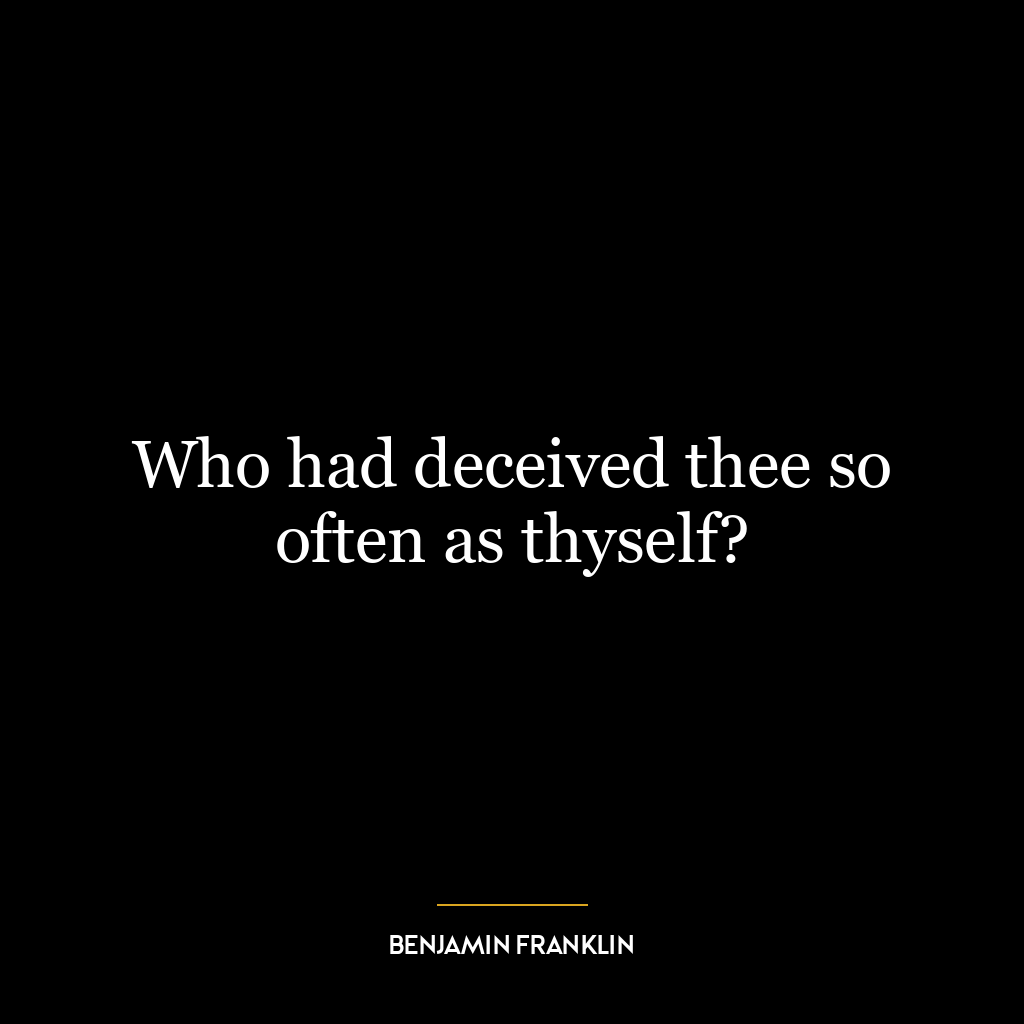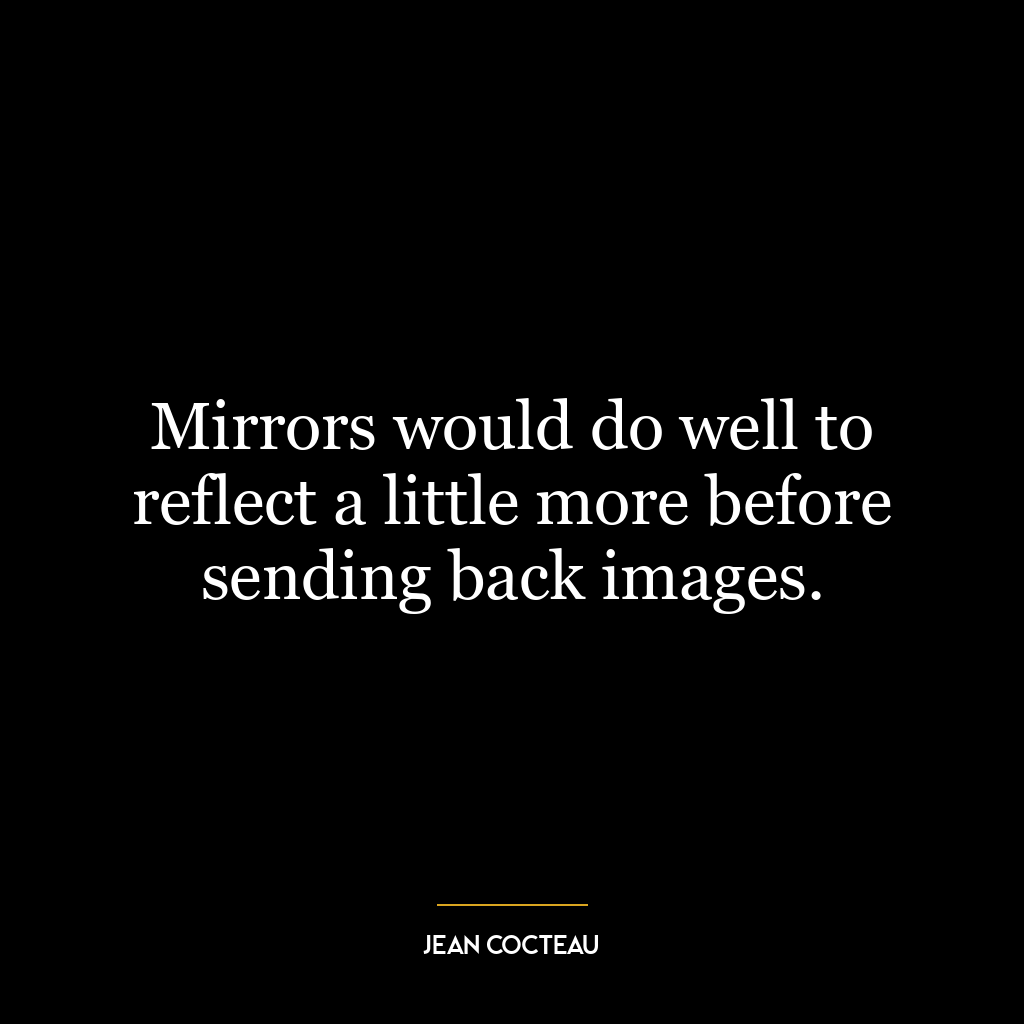Who had deceived thee so often as thyself?
This quote is a profound statement about self-deception. It’s an exploration of the human tendency to lie to ourselves, to believe our own illusions or misconceptions, and the consequences that come from such self-deception. We often convince ourselves of things that are not true, or we choose to ignore the truth, which ultimately leads to disappointment, failure, or even harm.
The quote suggests that we are often our own worst enemy. We deceive ourselves more than anyone else ever could. We may blame others for misleading us, but in reality, we are the ones who allow ourselves to be deceived. We create illusions about ourselves, about others, about the world, and when these illusions shatter, we feel betrayed, even though we are the ones who created them in the first place.
In the context of today’s world, this quote is highly relevant. In this era of social media and instant gratification, it’s easy to fall into the trap of self-deception. We often convince ourselves that we need to live up to certain standards of success, beauty, or happiness that are portrayed online. We deceive ourselves into believing we need to have what others have, or be who others are, forgetting that these are often curated, unrealistic representations of life.
In terms of personal development, recognizing and acknowledging self-deception is a crucial step towards growth. By understanding that we are often the architects of our own deceit, we can start to question our beliefs and assumptions, challenge our illusions, and seek the truth. This can lead to more authentic living, better decision-making, and ultimately, personal growth and development.
In conclusion, Franklin’s quote serves as a timeless reminder of the dangers of self-deception and the importance of self-awareness and truth in our journey towards personal development and fulfillment.













